Gen Z - Attracting & retaining the future workforce
While it may seem like a ruse to make us feel the movement of time, the oldest members of Gen Z are turning 26 this year…
Now a fully fledged part of the workforce, factoring this new generation into a recruitment strategy should be a priority for all employers - but what should you consider in order to attract and retain Gen Z employees?
According to the World Economic Forum, Gen Z will make up about 27% of the workforce by 2025 - however this young-ish generation has already begun bringing their own fresh set of values, skills and expectations to the workplace. Known for valuing inclusivity, flexibility and competitive salaries, there are many ways in which workplaces need to adapt to welcome Gen Z employees.
Of course, it is easy to be sceptical about the young and unfamiliar - especially as the conversation around different generations often focuses on stereotypes and conflicts rather than more positive attributes - but understanding Gen Z and the way they work is vital for businesses that want to stay relevant and informed into the future.
Over the past three years we’ve all had our work routines shaken up and traditional practices thrown into question, so it’s a perfect time to consider how to adapt your business and recruitment strategy for a new era and a new generation.
In this blog we’ll be covering what employers need to consider in order to attract, motivate and manage Gen Z employees.
A precarious economic, environmental and social climate has made Gen Z want to make a difference.
Photo: Callum Shaw - Unsplash
Who is Gen Z?
Gen Z is the generation born between 1996 and 2012 and represents around 30% of the global population. A quick look at the wider elements that have shaped this generation is imperative to understanding their approach to work:
They are digital natives.
Having never known the world pre-internet, they have grown up with instant access to information. They are digitally savvy, quick to adopt new technology and well connected.
They studied, graduated or entered employment during the pandemic
With both the workforce and the economic landscape vastly disrupted in recent years, it is not unsurprising that Gen Z have not smoothly accepted traditional employment practices.
They have been hit hard by unemployment.
According to the Organisation for Economic Co-operation and Development, in 2020 the unemployment rate for Gen Z was double that of the rest of the population.
They were born on either side of a new century.
Admittedly this is mostly symbolic - however it has led some ‘zoomers’ to refer to previous generations as ‘people born in the 1900s’, which (rather frighteningly) makes quite a point.
They recognise the system is largely broken.
Having observed those already in work experience stagnant wages, increasing time poverty and rigid working hours, they have set their standards a little higher.
Flexible working can incorporate location, hours and an empathetic workplace.
Photo: Eliott Reyna - Unsplash
The Gen Z Approach to Work
Growing up during two recessions, a pandemic and a climate crisis has shaped Gen Z as much as smartphones have. Like many generations before, they have looked at the world and decided a bit of a shake up was needed.
Along with having concerns around social and environmental issues, they are critical of outdated workplace methods, and have a strong awareness of their mental health. Consequently, they are a value-driven generation who prioritise work-life balance, inclusivity, flexibility and fairness over surface level things such as in-office perks.
These statistics from the Kronos Workforce Institute Report 2019 shed some light on what motivates Gen Z, indicating how companies need to adapt for this younger workforce.
26% would work harder and stay longer at a company with flexible schedules.
32% are motivated to work harder and stay longer at a company if they have a supportive manager.
51% are motivated by enjoyable work.
With recent shake ups in the workforce, now is the time to rebuild
Photo: Josh Olalde - Unsplash
Future proofing your workplace
With Gen Z being the next key demographic in the workforce, now is time to rewrite the script so your business doesn’t get left behind. Reviewing your staff benefits, work patterns and company culture should be a key part of your recruitment strategy, so make sure to consider these key points.
Ditch any preconceived stereotypes.
You’d be mistaken if you think Gen Z are glued to their phones and all in favour of remote working. Studies show that 43% prefer hands-on training and in-person first-day orientation, 44% prefer to work with their team in person, and 39% prefer to communicate with their team or employer in person rather than text or email.
[Data: Kronos Workforce Institute Report 2019]
Understand, advance and utilise
Market research from GWI found that learning new skills was important to 63% of Gen Z surveyed. While they may not have quite the same skill set as previous generations, they also have a lot to offer already! From excellent technological skills to the desire to bring about positive change, making use of their newfangled outlook can help drive your company into the modern day.
Ensure an inclusive environment
Genz Z takes diversity and inclusivity seriously and will expect employers to as well. Your business must be welcoming of a diverse range of identities, so look to how you can offer support for those experiencing issues such as mental health and neurodiversity. Make this a solid part of your company culture, and demonstrate in your job spec.
Provide flexibility
Gen Z are protective of their time. Having grown up observing our work culture move on from the traditional 9-5 schedule, options such as working from home, flexitime and compressed hours are likely to be more attractive to them.
Be transparent
A recent survey from Adobe found that before applying, applicants will look at brand reputation (92%) and employee reviews (89%), while 85% of upcoming and recent grads are less likely to apply for a job if the company does not disclose the salary range in the job posting.




